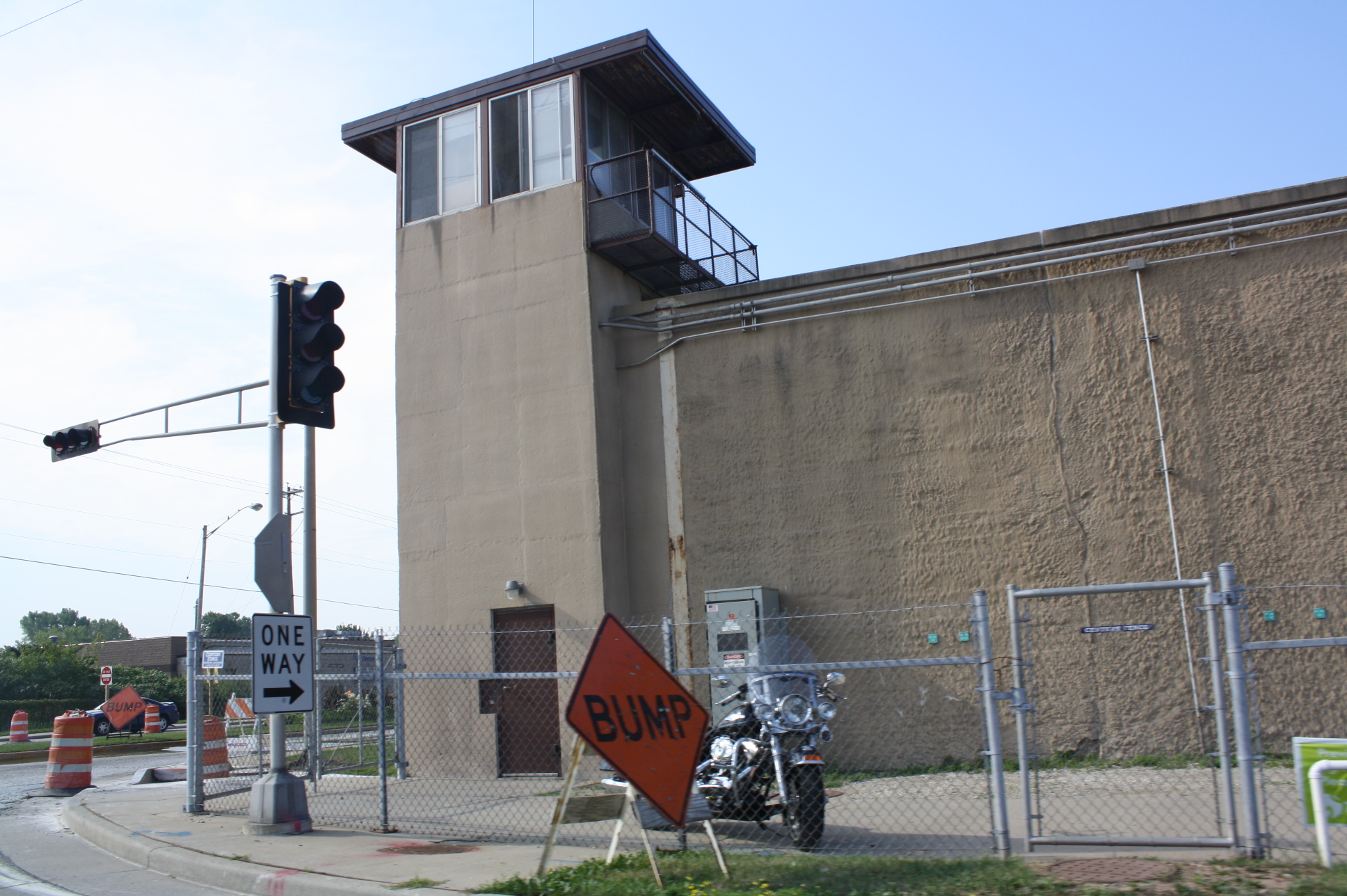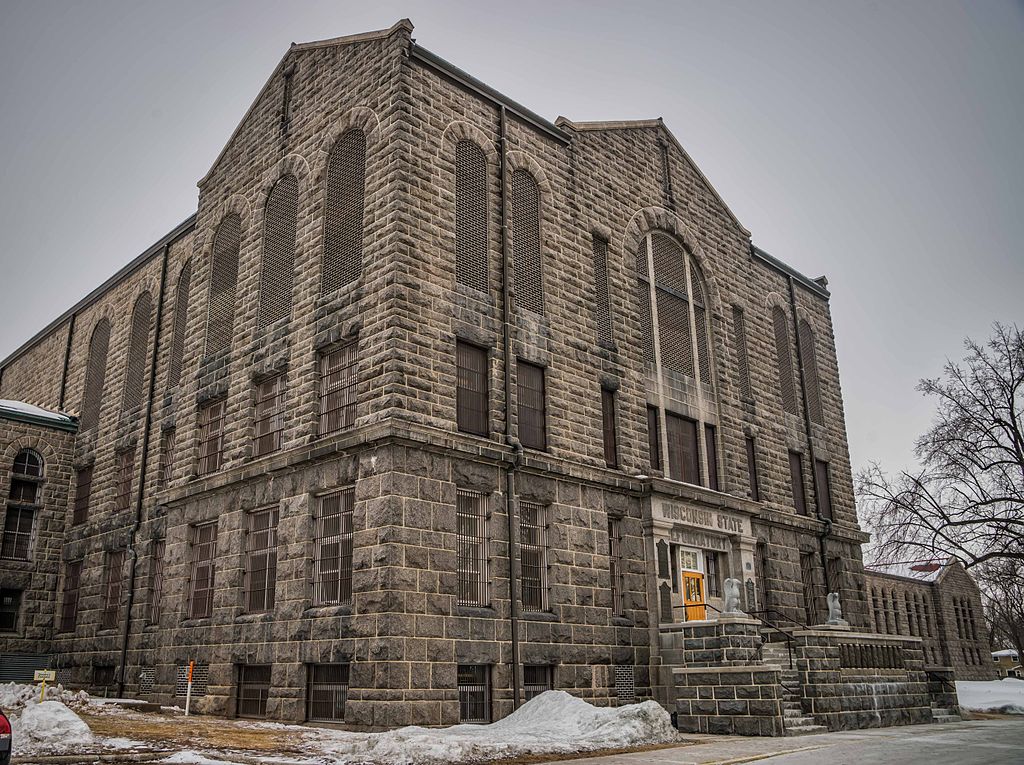A coalition of politicians, members of law enforcement and formerly incarcerated people took to the state Capitol last week to urge the governor and state lawmakers to shut down one of Wisconsin’s oldest prisons.
The group’s goal is to get Democratic Gov. Tony Evers to commit to closing the Green Bay Correctional Institution, or GBCI, in Wisconsin’s next two-year budget, Rep. David Steffen, R-Green Bay, said during a forum in Madison.
He was joined by numerous local elected officials, including Allouez Village President Jim Rafter, who’s running for the state Senate as a Republican.
News with a little more humanity
WPR’s “Wisconsin Today” newsletter keeps you connected to the state you love without feeling overwhelmed. No paywall. No agenda. No corporate filter.
A 2020 report detailed numerous problems at the 126-year-old maximum-security facility in Allouez, including security concerns, leaky plumbing and noncompliance with the Americans with Disabilities Act.
“All of the major prison codes relating to construction and operation, it has failed,” Steffen said. “It is in a dire state, and it’s waiting for a major issue to happen.”
Steffen has long argued for closing Green Bay and opening another prison elsewhere in the state to replace it. But efforts to do so have floundered at the state-level despite years of advocacy from officials in Greater Green Bay.
One five-year-old estimate pegged the cost of replacing Green Bay at up to half a billion dollars.
At the same time, progressive proponents of criminal justice reform have opposed building another prison. Instead, they’ve argued for reducing Wisconsin’s incarcerated population so replacement is not necessary.
“It’s not understaffing, it’s overcrowding,” JOSHUA Co-President Steve Warner said of GBCI’s problems during the forum in Madison. “We have way too many people in our prison system in this state.”
JOSHUA, a progressive faith-based organization, is part of the coalition advocating for Green Bay’s closure.
More than 1,000 men are locked up at Green Bay, according to the department’s latest count, making the prison over capacity by about 300 people.
That’s forced men to double-up in cells designed for a single person, noted Randy Knapp, whose 23-year-old son is incarcerated at Green Bay.
“When they eat their meals, morning, noon and night, they’re within about 2 feet of the toilet,” Knapp said. “What a table.”
Departments of Corrections Spokesperson Beth Hardtke said inmates began eating meals in their cells in 2020 to limit the spread of COVID-19. She said that practice continues at some prisons, including Green Bay, because of understaffing.
Close to 30 percent of corrections officer positions remain empty at Green Bay Correctional. That’s despite raises for those employees which went into effect July 1.

During the forum in Madison, several panelists argued pay alone isn’t enough to recruit and maintain staff at the dilapidated prison, which has earned the nickname “Gladiator School.”
Brown County Sheriff Todd Delain said the outdated design of the prison makes it inefficient to patrol and puts staff at risk. And, he said, the facility’s layout isn’t conducive to rehabilitating inmates so they can return to society.
“That kind of goes back to an overall frustration of being housed in a small, tight environment for extended periods of time,” DeLain said. “The staff does the very best they can. But the facility limits their ability to be able to allow inmates to move to different areas and have recreation and different programming.”
The cells at Green Bay measure roughly 56 square feet and the 2020 report found they didn’t meet modern American Correctional Association standards at single occupancy, let alone double occupancy.
Citing safety concerns amid severe short-staffing staffing, DOC officials have been limiting the movement and activities of prisoners at Green Bay for the last 10 months.
While officials say they’ve since lifted some lockdown restrictions, prisoners at Green Bay continue to face limits on their allotted recreation time.
Normally, DOC rules require at least four hours of recreation time per week. But, Green Bay inmates are currently getting just over four hours a month.
Hardtke said the department plans to increase allotted leisure time at Green Bay next month.
Earlier this year, Evers told WISN-TV that closing Green Bay Correctional would be “premature.” In that interview, Evers suggested that space for incarcerated adults could eventually be freed up when the Lincoln Hills youth prison in northern Wisconsin closes.
The Lincoln Hills School for boys and nearby Copper Lake Schools for girls are being overseen by a court-appointed monitor after a 2017 lawsuit described widespread civil rights violations at the youth facilities. A 2018 state law set a deadline for Lincoln Hills/Copper Lake to close in 2021, but that timeline has long since passed amid stalled plans for replacement facilities.
In a statement Friday, an Evers spokesperson says there’s been “no change in the governor’s positions” on closing or replacing Green Bay.
“Any plan to close an adult correctional institution must be comprehensive and considered holistically based on the needs of Wisconsin’s adult corrections program,” spokesperson Britt Cudaback wrote in an email.
Wisconsin Public Radio, © Copyright 2025, Board of Regents of the University of Wisconsin System and Wisconsin Educational Communications Board.



